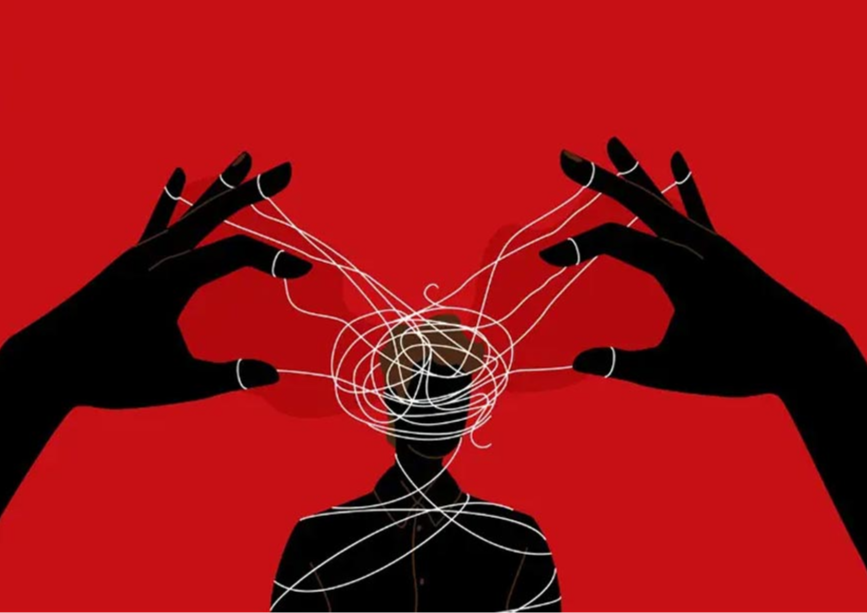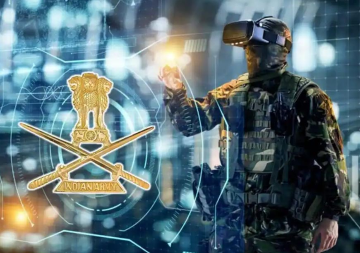
Due to the dynamic nature of warfare, a new term has emerged: “cognitive warfare”. The strategy behind this form of warfare focuses on manipulating the human brain to win a war. The usage of this term has mostly been made in the context of China-Taiwan rivalry, where the Chinese strategy in the last few decades has shifted towards influence-based operations. This is because China has concluded that an immediate military intervention in Taiwan would be a costly affair. This article looks at the Chinese practice of cognitive warfare and how it plays out against its adversaries, specifically Taiwan.
Cognitive warfare
Cognitive warfare primarily targets the human mind, using techniques that manipulate the mind. It involves two key players: the perpetrator who launches the attacks and the citizens who are targeted. It uses techniques and technologies such as Artificial Intelligence (AI) to influence the mind. The idea of cognitive warfare can also be traced back to Sun Tzu, a Chinese military strategist from the 6th century. His idea of warfare was “breaking the enemy resistance without fighting.” This emphasises targeting the cognitive processes of the human mind to win a war, without engaging in a kinetic battle. This idea of warfare has made a significant impact on the thinking of the Chinese People’s Liberation Army (PLA) generals.
The idea of cognitive warfare can also be traced back to Sun Tzu, a Chinese military strategist from the 6th century. His idea of warfare was “breaking the enemy resistance without fighting.”
PLA and cognitive warfare
In 2003, the PLA introduced the “three warfares” strategy by amending its Political Work Guidelines. The three warfares were: media or public opinion warfare, psychological warfare, and legal warfare. These three are directly related to cognitive warfare. Public opinion warfare focuses on manipulating national and international public opinion to achieve a specific outcome. In contrast, psychological warfare aims to intimidate and evoke emotions through a planned strategy. Building on its information warfare strategy, the PLA doctrine emphasises “intelligentised warfare.”
According to the PLA Daily, the official newspaper of the PLA, China is developing wearable technology to act as a psychological support system, preparing soldiers for the mental challenges of real combat. Several soldiers have been equipped with these smart sensor bracelets that continuously collect facial data to assess their psychological state in real-time. This data is then processed and analysed to provide feedback. The PLA, therefore, recognises the importance of its soldiers’ mental well-being and cognitive abilities, viewing them as a foundation for victory in warfare.
Understanding China’s strategy against Taiwan
China’s cognitive operations towards Taiwan are not directed by a single office but rather coordinated by various government departments and Chinese Communist Party agencies. Their goal is to exacerbate internal divisions within Taiwan. These operations involve spreading disinformation online and through media channels, as well as employing intimidation tactics through troop deployments designed to deceive enemy surveillance.
Domestic Taiwanese sentiment continues to be divided between those who favour unification with China and those who insist that Taiwan should remain an independent state.
The tension between China and Taiwan is a deeply rooted issue stemming from the unresolved Chinese Civil War of the 20th century. This conflict led to the establishment of the People’s Republic of China on the mainland in 1949. China maintains that it is the sole legitimate government of China under the ‘One China’ policy, insisting Taiwan is a ‘renegade’ province. However, Taiwan has developed into a self-governing state with its own democratic institutions, including a military and constitution. Yet, domestic Taiwanese sentiment continues to be divided between those who favour unification with China and those who insist that Taiwan should remain an independent state.
It is in this context, that China has deployed the strategy of cognitive warfare vis-à-vis Taiwan. In recent years, this has mainly involved four key elements:
- Executing cyberattacks against Taiwanese targets: In August 2022, when then US House Speaker, Nancy Pelosi, was visiting Taiwan, China launched several targeted cyberattacks against Taiwanese computer networks and websites. In one such instance, digital signages at the 7-Eleven stores were hacked to display messages like: “ Warmonger Pelosi, get out of Taiwan”. These attacks were aimed at manipulating and intimidating the people of Taiwan.
- Using social media and other means to spread disinformation, including deep fakes to manipulate public opinion in Taiwan: The main challenge for Taiwan here is that it has not banned Chinese-based social media platforms like TikTok. This poses a serious threat as China has utilised the platform to push pro-China messages. Similarly, China has also used AI tools like deepfakes to circulate fake videos. Some of these videos have been created as tools to interfere in Taiwan’s electoral process and create a sense of mistrust among the citizens and the Taiwanese government.
- Military intimidation without undertaking a kinetic action: For instance, in the summer of 2022, the PLA sent more than 100 warplanes over Quemoy Island, simulating a blockade of Taiwan, as part of a military drill. Experts have named this sort of intimidating tactic as “the grey zone” tactics.
- Using soft power: China has used bilateral exchange programmes to lure Taiwanese students and offer them economic and sociocultural benefits. For instance, China offers free services on travel and reception or large discounts to travel to China from Taiwan. Reportedly, China has also offered additional seats for Taiwanese students at Peking University, one of the oldest and reputed leading research universities in China. The Chinese goal is to socialise Taiwanese professionals into reshaping their ideas about Chinese progress, holding their interests, and paving a way towards accepting Chinese influence.
Taiwan’s response
Taiwan’s response to China’s cognitive warfare has primarily focused on tackling disinformation. Just recently on 18 January, Taipei opened its first Cognitive Warfare Research Center. According to local media reports, the centre has three divisions: data compilation and research, analysis of cognitive warfare targeting Taiwan, and a swift response unit to combat fake news. Its focus is on tackling fake accounts, and news and creating awareness among the public. The Centre aims to combat the zombie accounts in real-time through cyber experts who will monitor the data constantly to root out the fake ones. The new centre has merged with the resources and professional expertise of the Ministry of Justice Investigation Bureau. The Central Election Commission in Taiwan has also set up a communication channel with TikTok and has flagged fabricated videos related to Taiwan elections.
The Centre aims to combat the zombie accounts in real-time through cyber experts who will monitor the data constantly to root out the fake ones.
As Taiwan finetunes its response to China’s cognitive warfare, this has implications for India too. Given the ongoing geopolitical competition and the unresolved border tensions in the Himalayas, it’s a possibility that China might employ similar tactics against India. For instance, in regions like Ladakh, the cognitive strategy might include shaping perceptions or controlling narratives influencing the local community’s stance on the issue of border disputes. The Chinese have also been using Twitter as a tool to push misleading narratives about the Galwan Valley clash of June 2020 and paint the Indian Army in a bad light. Therefore, Indian policymakers need to be vigilant to get their act together against China’s cognitive warfare strategy, given Chinese agendas and executions for anti-India propaganda.
Bhairabi Kashyap Deka is a Research Intern at the Observer Research Foundation
The views expressed above belong to the author(s). ORF research and analyses now available on Telegram! Click here to access our curated content — blogs, longforms and interviews.




 PREV
PREV


